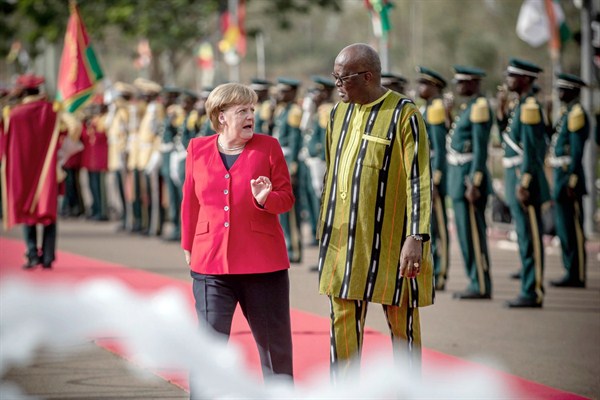BAMAKO, Mali—“The terrorists are quick,” German Chancellor Angela Merkel told reporters after a summit with the leaders of Mauritania, Mali, Niger, Chad and Burkina Faso in Ouagadougou in May. “This is why we have to be quicker, so that we can beat them.”
What happens in the Sahel, the vast sub-Saharan region of Northern Africa, “is not only the responsibility of the region, but is also a European responsibility,” Merkel added in what was for her some uncharacteristic alarmism. “If chaos gains the upper hand here—something we want to prevent—other areas would be impacted.”
The sight of Merkel standing side by side with the presidents of the Sahel countries has become a familiar one. Since 2016, Merkel has visited Africa eight times, often stopping in several Sahel countries on each trip and putting a special emphasis on the region. By comparison, in the 10 years before, she set foot on the continent on only four occasions, including once to attend a match of the German national soccer team during the 2010 World Cup in South Africa.

